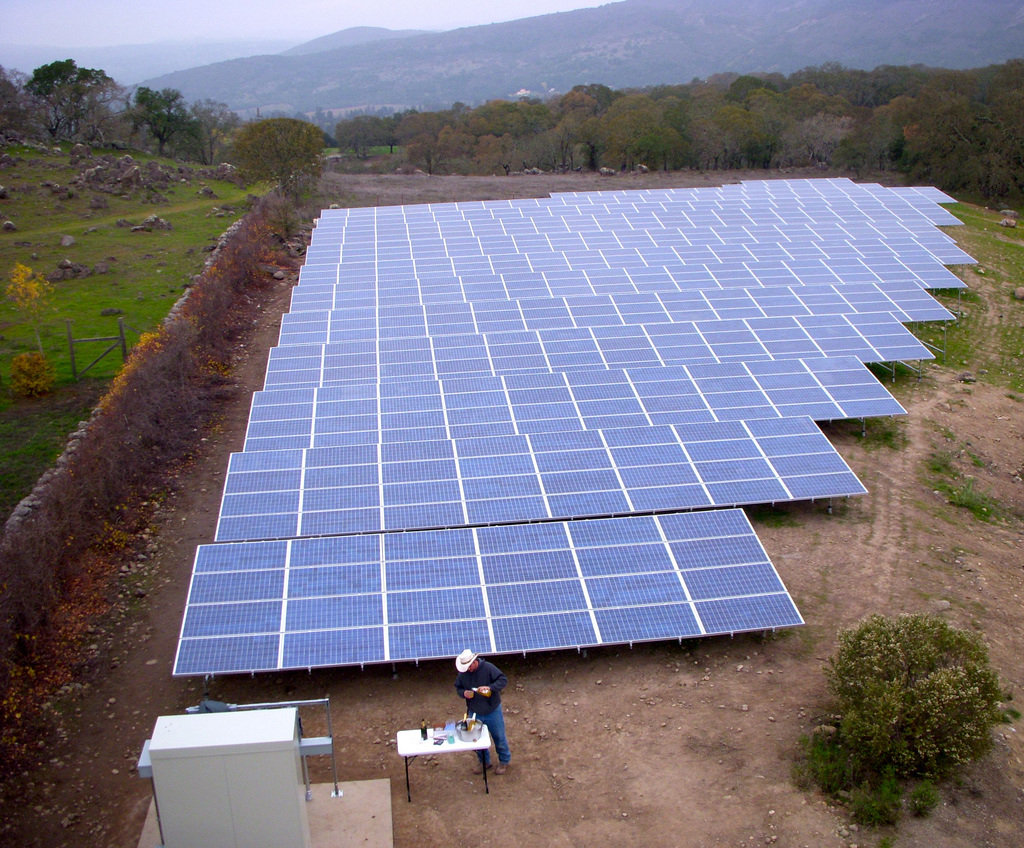Johns Hopkins University (JHU) announced Monday that it’s making a commitment to supply solar power to its campuses to help reduce carbon emissions.
Through an agreement with Baltimore-based energy company Constellation, the university is looking to supply 250,000 megawatt hours of solar power per year. That would account for two thirds of its energy needs, officials said.
“When we pledged to more than halve our carbon emissions by 2025, we knew it would require rethinking how we power and operate our university,” JHU President Ronald J. Daniels said in a statement. “This agreement demonstrates the seriousness of our commitment to sustainability for the good of our university and our planet.”
The 15-year agreement begins in 2021. According to the university, here’s how the deal will work: Constellation will buy energy and renewable energy certificates, known as RECs, from a new solar plant being developed in Virginia, and in turn sell them to JHU.
In Baltimore, campuses that will be powered via solar include Homewood in North Baltimore, Peabody Institute in Mt. Vernon, Keswick in Hampden and Mount Washington.
Elsewhere in Maryland, the JHU Applied Physics Laboratory in Laurel is also in the mix, initially purchasing only project-specific RECs. Campuses in Montgomery County and D.C. will also receive solar power.
JHU’s School of Medicine and the Bloomberg School of Public Health in East Baltimore will have power partially covered with solar power under the agreement.
According to Hopkins’ own research, it’s one of the largest pledges among universities around the country to reduce carbon emissions.
The agreement will help reduce carbon emissions by 123,000 metric tons in the first year. In terms of environmental benefit, that’s the equivalent of 26,115 cars off the road or planting more than 2.3 million trees, the university said, citing the U.S. Environmental Protection Agency.
It’s part of a wider effort at the university to reduce carbon emissions.
Previously the university also invested in three cogeneration plants, which turn heat waste into energy, said David Ashwood, senior director of plant operations.
The university also recently hired Julian Goresko as director of sustainability. Having previously worked at the University of Pennsylvania, he will convene stakeholders and identify areas where JHU can make an impact on reducing carbon footprint, waste and other environmentally conscious initiatives.
The university is also forming a sustainability leadership council that brings together staff and students to work toward holistic solutions, Goresko said.
Before you go...
Please consider supporting Technical.ly to keep our independent journalism strong. Unlike most business-focused media outlets, we don’t have a paywall. Instead, we count on your personal and organizational support.
Join our growing Slack community
Join 5,000 tech professionals and entrepreneurs in our community Slack today!

The person charged in the UnitedHealthcare CEO shooting had a ton of tech connections

From rejection to innovation: How I built a tool to beat AI hiring algorithms at their own game

Where are the country’s most vibrant tech and startup communities?


